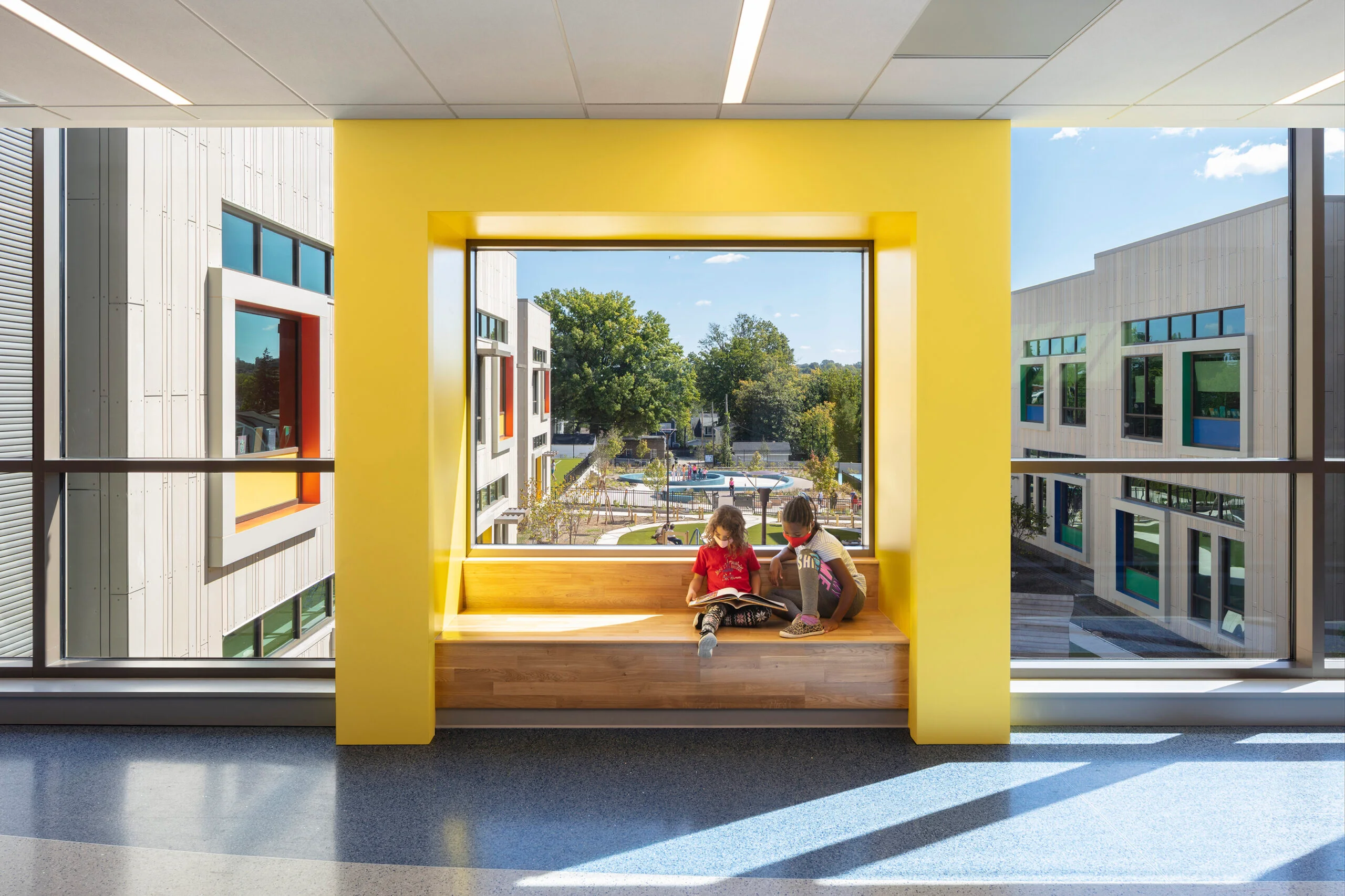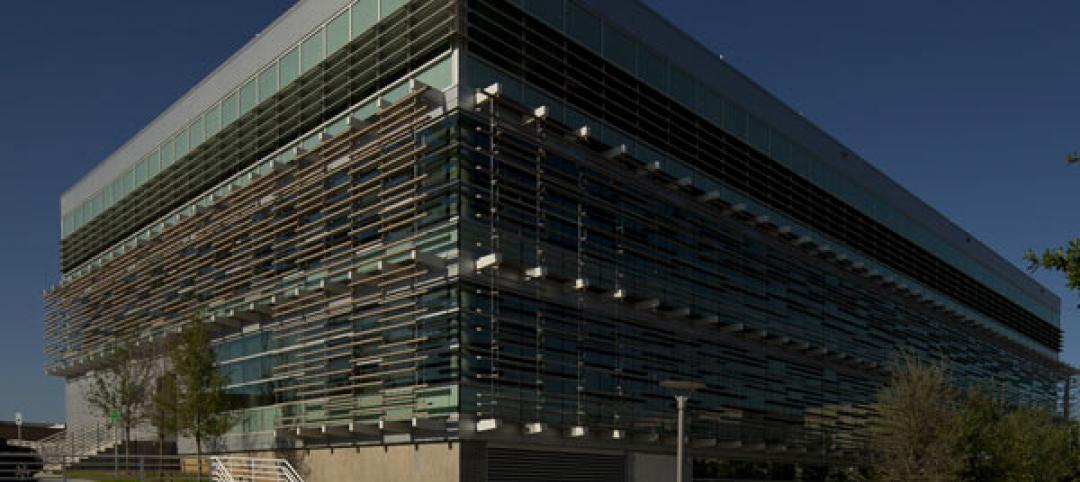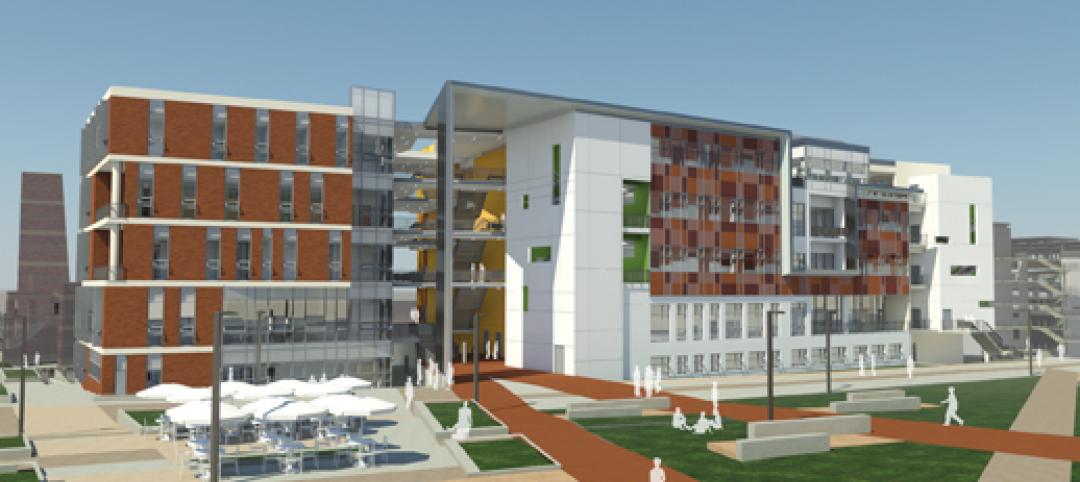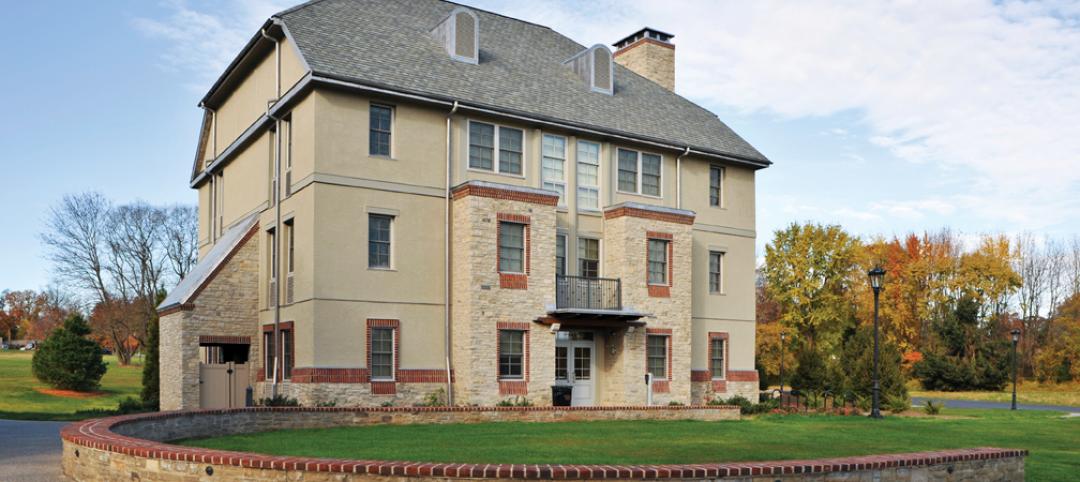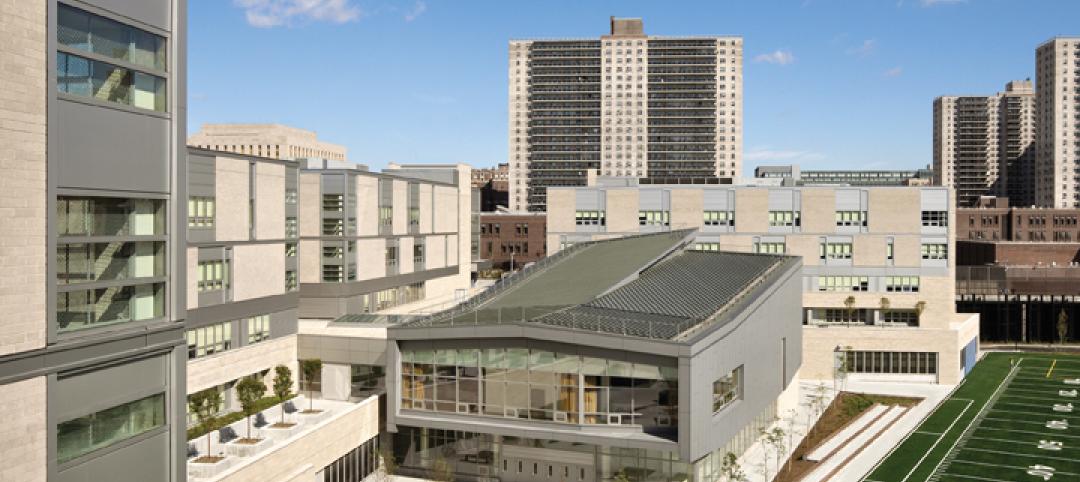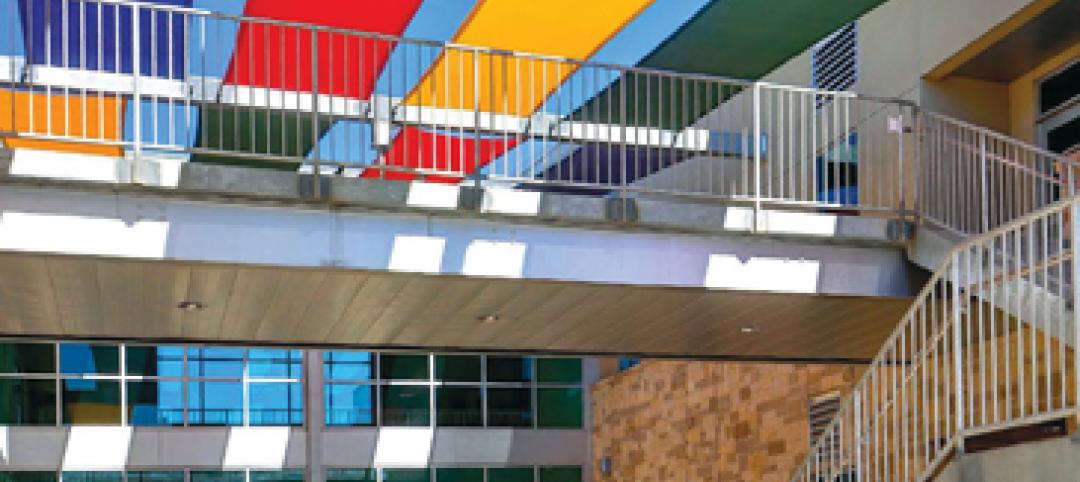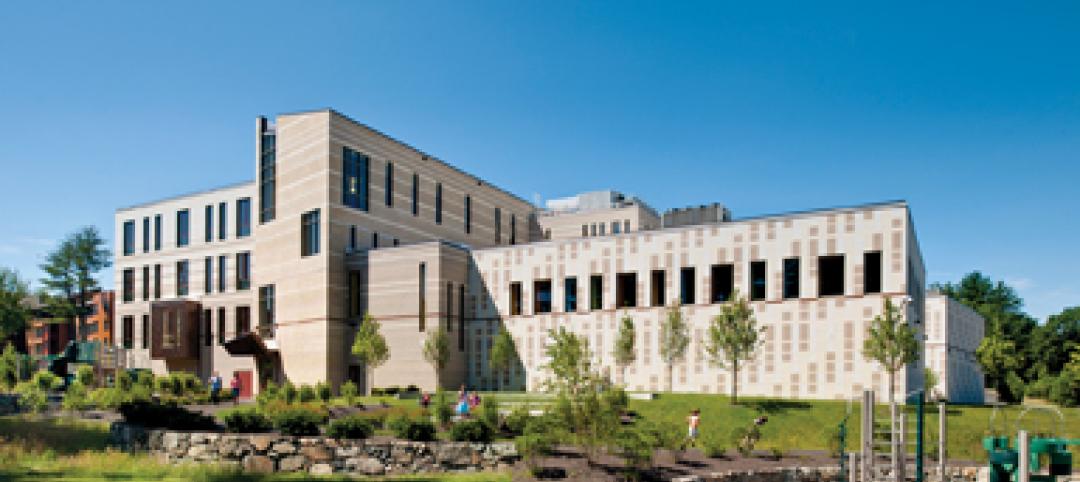A new K-12 school in Washington, D.C., is the first school in the world to achieve both LEED for Schools Platinum and WELL Platinum, according to its architect, Perkins Eastman.
The John Lewis Elementary School is also the first school in the District of Columbia designed to achieve net-zero energy (NZE). The facility was designed to improve student and teacher performance, health, and well-being, as well as reduce the building’s life-cycle costs. (See more K-12 schools coverage from BD+C.)
The new building replaced an obsolete, brutalist open-plan building. The design retained the best aspects of the open plan, providing flexible space and ease of communication, while improving adjacencies, daylighting, acoustics, security, and outdoor space.
The design emphasizes outdoor recreation and connections with the natural world, known to improve student health and academic achievement. The landscape design embeds natural systems with dynamic play and learning spaces to blur the walls of the classroom. A treasured place for the community, certain school amenities are accessible after-hours and on weekends.
The building offers a series of intimate, child-scaled houses inside and outside that foster collaboration and strong relationships. Designers benchmarked performance against several of the highest performing schools in the country on energy and Indoor Environmental Quality (IEQ) factors to provide the best daylight, most comfortable, and healthiest learning environments of any school building.
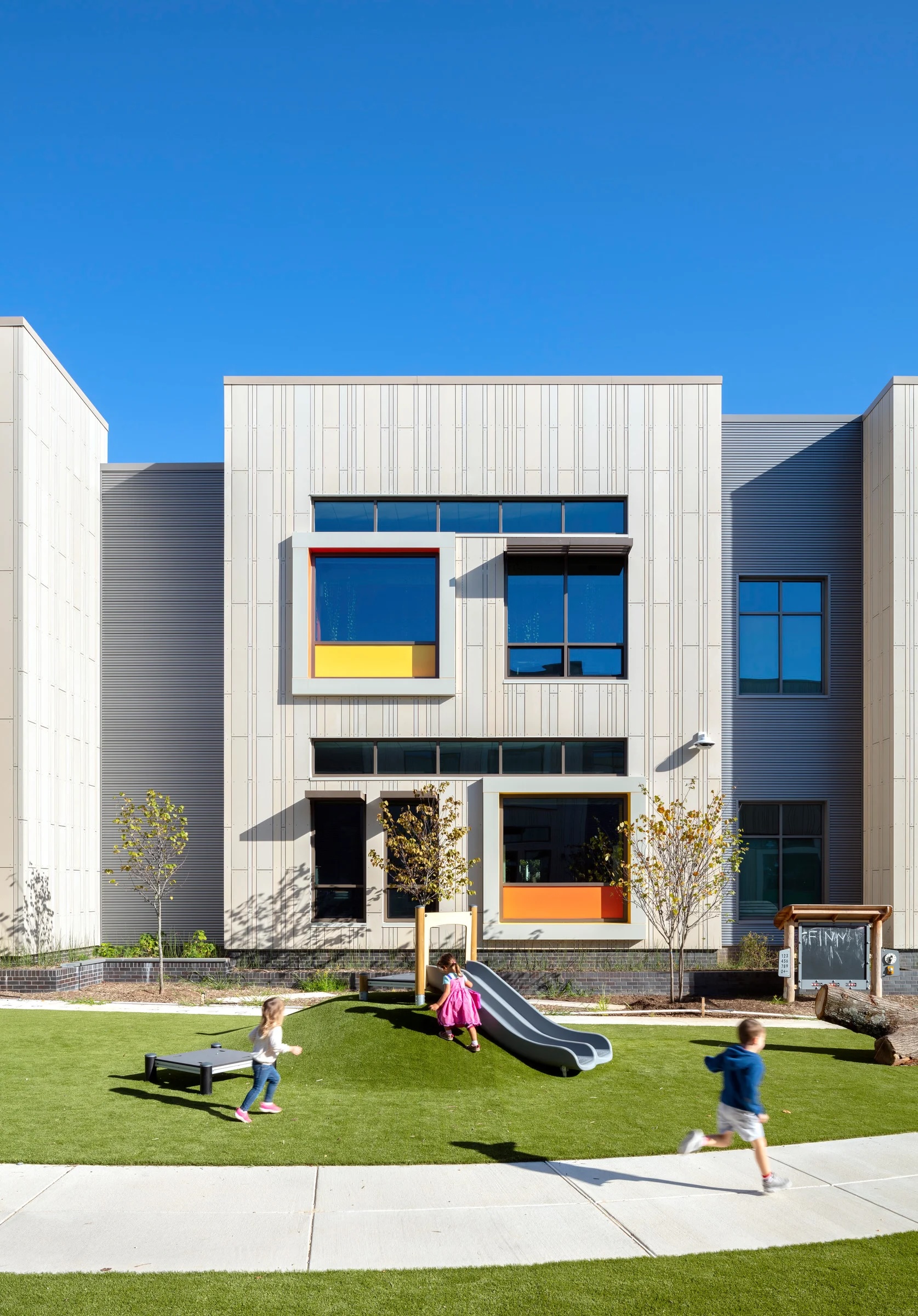
A high-performance dashboard tracks the building’s energy consumption, showcases the building’s sustainability features, and links to the school’s curriculum to address topics such as social and environmental justice, climate change, and water conservation. Through this interactive, online dashboard, students and teachers can discover how they interact with the building, and how the building and campus influence and are influenced by the larger environment.
The building is paired with Benjamin Banneker Academic High School, concurrently designed, which is also targeting NZE. The excess energy expected to be generated at John Lewis will help Banneker also achieve NZE.
Owner and/or developer: DC Department of General Services | DCPS
Architect: Perkins Eastman DC
MEP engineer: CMTA
Structural engineer: Yun Associates
General contractor/construction manager: MCN Build
Related Stories
| Dec 27, 2011
USGBC’s Center for Green Schools releases Best of Green Schools 2011
Recipient schools and regions from across the nation - from K-12 to higher education - were recognized for a variety of sustainable, cost-cutting measures, including energy conservation, record numbers of LEED certified buildings and collaborative platforms and policies to green U.S. school infrastructure.
| Dec 5, 2011
RJM Construction begins building Nova Classical Academy in St. Paul
As the general contractor, RJM is constructing the 94,000-sf building that will consolidate the St. Paul school’s two other locations.
| Sep 23, 2011
Under 40 Leadership Summit
Building Design+Construction’s Under 40 Leadership Summit takes place October 26-28, 2011 Hotel at the Monteleone in New Orleans. Discounted hotel rate deadline: October 2, 2011.
| Sep 12, 2011
LACCD’s $6 billion BIM connection
The Los Angeles Community College District requires every design-build team in its massive modernization program to use BIM, but what they do with their 3D data after construction is completed may be the most important change to business as usual.
| Jul 22, 2011
Five award-winning modular innovations
The Modular Building Institute's 2011 Awards of Distinction highlight fresh ideas in manufactured construction projects.
| May 18, 2011
Former Bronx railyard redeveloped as shared education campus
Four schools find strength in numbers at the new 2,310-student Mott Haven Campus in New York City. The schools—three high schools and a K-4 elementary school—coexist on the 6.5-acre South Bronx campus, which was once a railyard.
| May 18, 2011
Eco-friendly San Antonio school combines history and sustainability
The 113,000-sf Rolling Meadows Elementary School in San Antonio is the Judson Independent School District’s first sustainable facility, with green features such as vented roofs for rainwater collection and regionally sourced materials.
| May 18, 2011
New Reform Jewish Independent school opens outside Boston
The Rashi School, one of only 17 Reform Jewish independent schools in North American and Israel, opened a new $30 million facility on a 166-acre campus shared with the Hebrew SeniorLife community on the Charles River in Dedham, Mass.
| May 18, 2011
Addition provides new school for pre-K and special-needs kids outside Chicago
Perkins+Will, Chicago, designed the Early Learning Center, a $9 million, 37,000-sf addition to Barrington Middle School in Barrington, Ill., to create an easily accessible and safe learning environment for pre-kindergarten and special-needs students.


